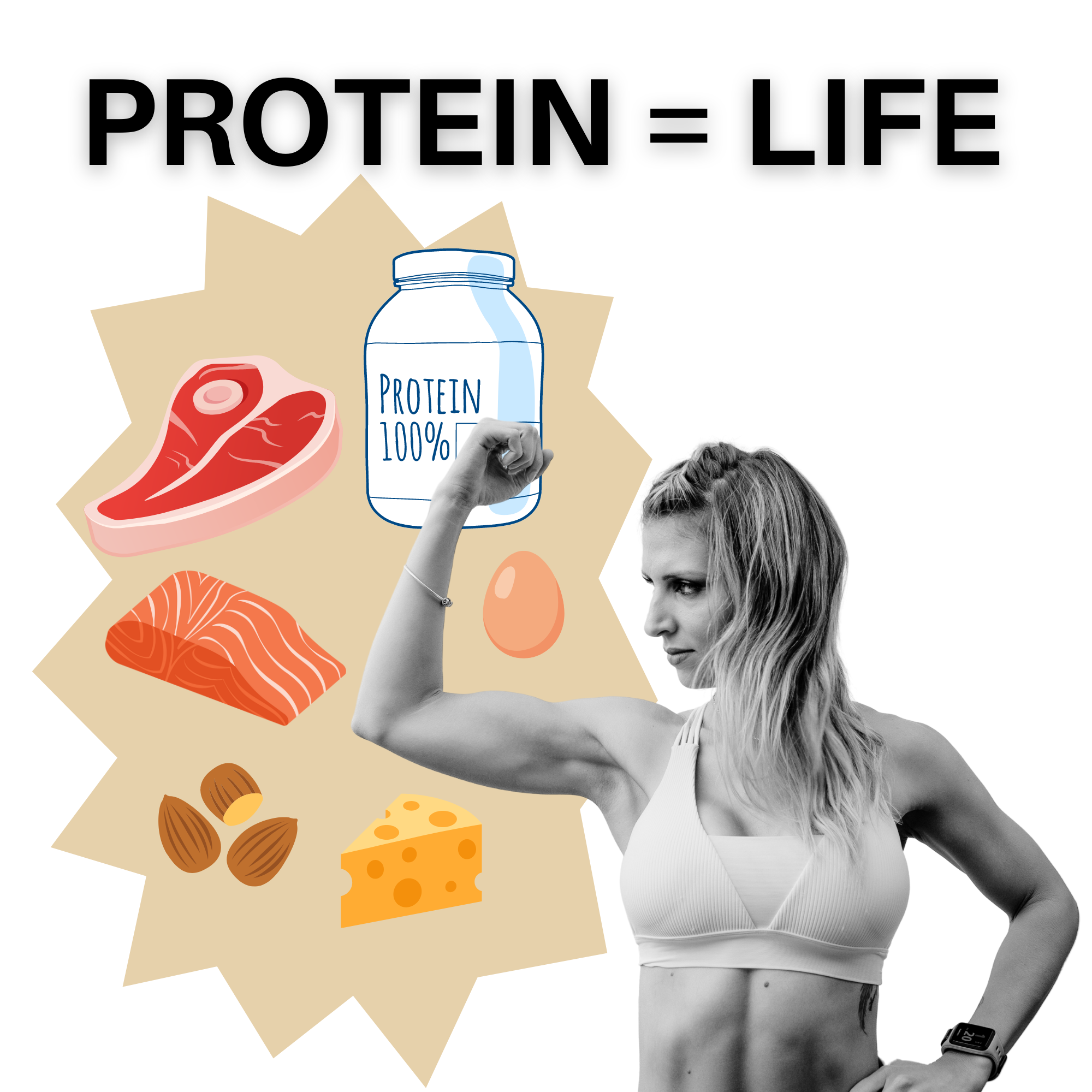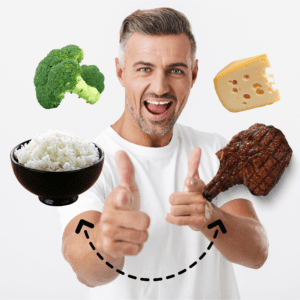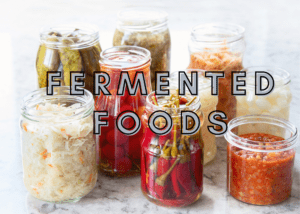“How much protein should I eat?” This is one of the most common questions we get asked by our clients. In response, we remind them that when they look in the mirror, what they see is all protein! Our hair, skin, muscles, bones, and all of our body tissues are made up of protein. Hence, it is critical to consume a sufficient amount each day, and most people realize they are not eating nearly enough.
Protein is a fundamental component of our diet, playing a vital role in maintaining our overall health and well-being. From supporting growth and repair, to regulating bodily functions, protein is an essential nutrient that our bodies rely on.
Proteins serve as the building blocks of life, forming the foundation of every cell, tissue, and organ in our bodies. They are composed of amino acids, which are essential for all of our physiological processes. When we consume proteinrich foods, our bodies break them down into amino acids, which are then used to build and repair tissues. This process is particularly important for growing children, as protein aids in their development, and supports the formation of new cells. It’s also critical for people over 40 years of age to consume as much as possible to prevent Sarcopenia (muscle wasting) in the later stages of life. We often say you don’t die from falling in your 80’s, you die from not enough muscle and the balance to stay upright!
Protein is renowned for its crucial role in muscle growth and repair. During physical activities and exercise, muscle tissues experience microscopic damage. Protein helps in repairing these damaged tissues and building new muscle fibers, thereby, promoting muscle growth and strength. Athletes and individuals who have engaged in regular exercise, often require higher protein intake to facilitate optimal recovery and enhance performance. We recommend that they consume 1 gram of protein/pound of bodyweight each day.
What most people don’t know is that proteins act as catalysts for biochemical reactions in our bodies, functioning as enzymes. Enzymes facilitate essential processes such as digestion, metabolism, and the synthesis of vital molecules. Additionally, hormones, which regulate various bodily functions, are predominantly made up of proteins. Hormones like insulin, growth hormone, and thyroid-stimulating hormone rely on proteins for their production and efficient functioning.
Protein plays a significant role in bolstering our immune system. Antibodies, a type of protein, recognizes and neutralizes foreign substances, like viruses and bacteria. Consuming an adequate amount of protein helps strengthen our immune system and supports its ability to defend against harmful pathogens, which lead to infections and disease. A deficiency in protein can weaken our immune response, making us more susceptible to these illnesses.
Proteins are involved in the transportation and storage of essential molecules throughout our bodies. For instance, hemoglobin, a protein found in red blood cells, transports oxygen from the lungs to other tissues and organs. Additionally, proteins called albumins are responsible for carrying nutrients, hormones, and vitamins throughout the bloodstream, ensuring they reach the necessary destinations.
Therefore, protein equals life! From supporting growth and repair, to regulating bodily functions, protein is involved in all your body’s vital processes. Be sure to consume enough protein-rich foods, to ensure your body receives an adequate supply of this essential nutrient. Your life depends on it.




